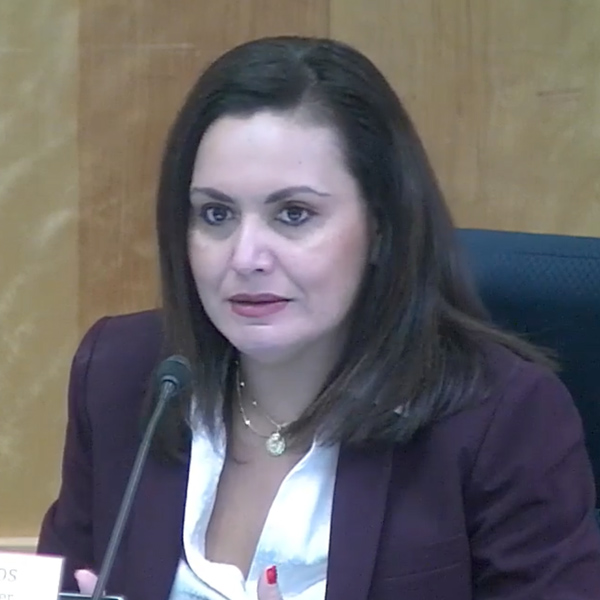
ERCOT to Add Reliability Monitor to its Responsibilities
The Texas Public Utility Commission last week approved staff’s recommendation that ERCOT serve as the footprint’s reliability monitor, formalizing a two-year collaboration that has resulted in several enforcement investigations (54248).
The commission agreed to direct ERCOT to assume the reliability monitor duties and responsibilities as part of the consent agenda during its open meeting Thursday. With Chair Peter Lake out on personal leave, Commissioner Will McAdams led the meeting.
PUC staff said ERCOT has for years adopted reliability-related regulations that are found in the organization’s nodal protocols, operating guides and other binding documents. For the past two years, it has worked with the commission’s Division of Compliance & Enforcement to jointly monitor and investigate potential noncompliance with the grid operator’s reliability rules.
As the reliability monitor, ERCOT will gather and analyze data; protect confidential information; provide expert advice to commission staff during the investigation, prosecution and litigation of reliability-related enforcement proceedings; and work under the PUC’s direction.
A spokesperson said the grid operator will need additional staff to perform the monitor’s duties. Its budget will be funded through the system administration fee that has historically included the function’s costs, she said. ERCOT staff will begin performing the function “immediately.”
The Texas Regional Entity had served as the grid’s reliability monitor from 2010 until 2020. The PUC ended its contract with the agency over concerns it wasn’t getting its money’s worth. (See PUC Cancels Texas RE as ERCOT’s Reliability Monitor.)
The Texas RE enforces NERC’s federal reliability and security regulations, which are subject to FERC oversight, in the state. Most entities operating on the transmission system in the ERCOT region are subject to NERC’s standards.
The state’s Public Utility Regulatory Act requires the PUC to adopt and enforce rules related to ERCOT’s reliable operation of the region’s system. It also allows the commission to delegate the responsibility for adopting or enforcing these rules to an independent organization.
ENGIE Case Set for Hearing
The commission approved in part and denied in part ENGIE’s and Viridity Energy Solutions’ (NYSE:ORA) complaint against ERCOT regarding the settlement of ancillary services during the February 2021 winter storm (53377).
 Commissioner Lori Cobos | Admin Monitor
Commissioner Lori Cobos | Admin MonitorThe PUC approved a preliminary order that sets issues to be addressed, but it denied ENGIE’s request to depose commission staff. It also denied its staff’s request for a protective order from providing depositions as being too broad.
“The commission can’t be deposed, given our quasi-judicial role in this matter,” Commissioner Lori Cobos said. She said ENGIE could request to depose specific commission staff by name as fact witnesses, making staff’s request too broad.
The companies allege that the grid operator did not properly credit Viridity for providing responsive reserve service (RRS) during the storm and that ENGIE was assessed $47.7 million in charges for replacement RRS. They argue that Viridity should be credited $67.4 million to $140.6 million for providing RRS and that ENGIE should not be charged for the replacement service.
The commission referred the docket to the State Office of Administrative Hearings (SOAH) to conduct a hearing and issue a proposal for decision to resolve any contested issues.
Entergy Power Plant not Considered
The PUC did not take up Entergy Texas’ (NYSE:ETI-) application to construct its 1.22-GW Orange County Advanced Power Station in Southeast Texas, despite an administrative law judge’s approval of the project (52487).
The ALJ in September recommended the project’s approval but removed a hydrogen component and imposed a cost cap. The project’s costs have already risen from $1.19 billion to $1.58 billion in a year. Entergy’s plans the facility to be able to burn 30% hydrogen upon commercial operation and eventually support 100% hydrogen operation.
“We continue to believe that Day 1 hydrogen co-firing capability for [the facility] is in the best interest of our customers,” Entergy CEO Drew Marsh said during the utility’s third-quarter analysts call Nov. 2. (See related story, Entergy Learning from Florida to Improve Resilience.) He noted that Texas Gov. Greg Abbott has “indicated” his support for the plant’s hydrogen capability.
“Capped hydrogen capability is less than 5% of the total investment, and it provides a critically important option for fuel diversity and ensures the plant’s continued value at the low-carbon future,” Marsh said.
PUC Adds OK to ADER Pilot Project
The commission formally approved ERCOT’s Aggregate Distributed Energy Resource (ADER) pilot project, which was also approved last month by the grid operator’s Board of Directors (53911). (See ERCOT Board of Directors Briefs: Oct. 18, 2022.)
The project will evaluate how ADERs can support reliability, participate in the wholesale market and play a role in emergency situations.
“This is a victory for the stakeholder process all the way around, from the commission to ERCOT staff to the industry stakeholders to the average everyday consumers who were able to participate,” said McAdams, who spearheaded PUC’s involvement in the project with Commissioner Jimmy Glotfelty. “Big things have small beginnings, and I think this is going to be a big thing.”
“I think that this puts us in a driver’s seat of leading again. … We’re going to learn a lot from this,” Glotfelty said.
In other actions, the PUC:
-
- denied El Paso Electric’s rehearing request to correct an error in one of its rate schedules. The utility filed an uncontested settlement with other parties to the proceeding in July that was approved by an administrative law judge in September (52195).
- assessed a $72,000 administrative penalty to South Texas Electric Cooperative for failing to telemeter the appropriate resource status code and for failing to timely and properly assign its ancillary service capacity obligation in 2019 (53691).
- agreed to open an investigation into Texas Excel Property Management for possible violations related to the denial of tenants’ rights to choose a retail electric provider in ERCOT’s footprint where retail customer choice has been introduced (54225).
